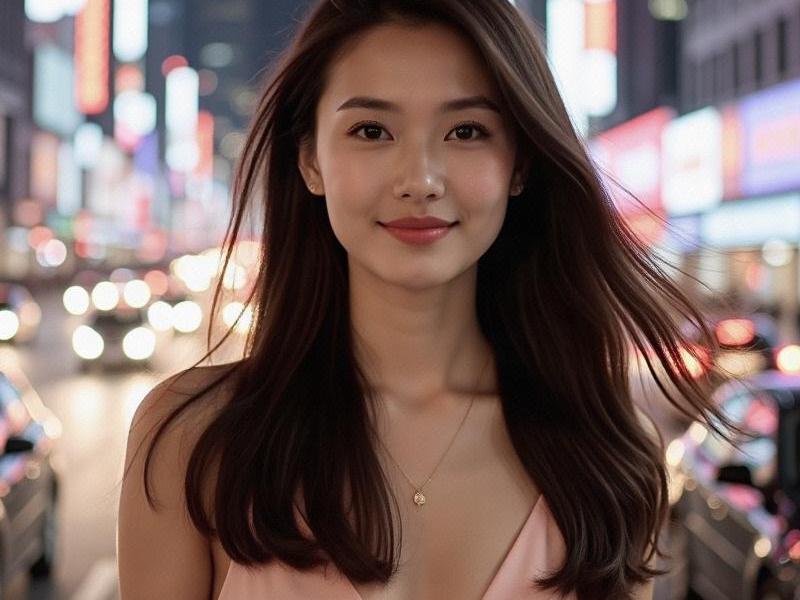Shanghai Glamour: The Evolution of the Modern Shanghainese Woman
⏱ 2025-07-07 00:20 🔖 上海龙凤419
📢0℃

Section 1: Historical Context
Shanghai Women Through the Decades:
- 1920s: The qipao revolution
- 1950s: Socialist equality movement
- 1980s: Reform and opening-up pioneers
- 2000s: Global career women
- 2020s: Digital age influencers
Section 2: Fashion and Aesthetics
Distinctive Style Elements:
1. Minimalist luxury preference
2. Fusion of Eastern and Western styles
上海龙凤419社区 3. Emphasis on quality over quantity
4. Seasonal fashion week participation
5. Growing sustainable fashion movement
Section 3: Career and Education
Professional Landscape:
- 72% labor force participation rate
- 38% hold management positions
- Average monthly salary: ¥15,800 ($2,200)
- Study abroad returnees: 58% female
- Entrepreneurship rate 12% higher than national average
上海花千坊419 Section 4: Social and Family Dynamics
Changing Roles:
- Average marriage age: 30.2 years
- 42% dual-income childless couples
- 68% say they share household duties equally
- 55% live with parents temporarily after marriage
- Divorce rate: 3.2% (lower than Beijing's 4.1%)
Section 5: Cultural Influence
Soft Power Indicators:
- 35% of Shanghai's artists are women
上海品茶网 - 6 female CEOs in Fortune China 500
- Dominance in publishing/media industries
- Growing influence in tech startups
- Leadership in cultural preservation
Section 6: Challenges and Future Trends
Contemporary Issues:
1. Work-life balance pressures
2. Age discrimination concerns
3. Beauty standard controversies
4. Rural-urban migartnexperiences
5. Mental health awareness movement
The Shanghainese woman represents a unique blend of traditional Chinese values and modern global perspectives, creating a model that influences women across China while navigating complex social expectations in one of the world's most dynamic cities.
Shanghai's Quantum-Financial Nexus: Where Bund Architecture Fuels Hyperspace EconomicsShanghai Life: From Street Art to Skyline ArchitectureShanghai's Nightlife Renaissance: How Entertainment Clubs Drive the City's After-Dark EconomyShanghai and Beyond: The Economic Powerhouse Reshaping the Yangtze Delta【城市更新观察】从工业锈带到文化秀带:苏州河沿岸的世纪转身Shanghai After Dark: How the City's Entertainment Clubs Are Redefining Global Nightlife Standards【越海传承】从三江口到黄浦江:沪甬双城的千年文化基因图谱Shanghai’s Velvet Renaissance: Where Imperial Elegance Meets AI-Driven NightlifeShanghai Beauties: The Shining Icons of the CityKeywords: Shanghai, Beauties, City Icon, Fashion, Culture, GlamourDescription:This article delves intoThe Shanghai Financial Revolution: How China's Economic Powerhouse is Redefining Global Finance
弄堂里的上海:从市井烟火到名人故居的文化共生弄堂口的"世界地图":解码上海的包容基因与城市密码梧桐区的晨与夜:解码上海美女的日常美学样本《夜上海的光影经济学》《旗袍针脚里的城市密码》沪上风华:上海女性的时空镜像
城市女性,身份建构,审美变迁,物质文化,记忆考古start
《霓虹褶皱:上海夜场的非欧几何》
包间曲率,酒水联络,舞池测地线,服务黎曼面,消费纤维丛start
《梧桐叶下的美学方程式:上海女性的时空解码》
旗袍拓扑学,弄堂色谱学,石库门声纹学,梧桐叶微表情,苏州河体态学start
《吴越褶皱:长三角文化基因的拓扑表达》
古镇分形学,方言混沌理论,运河测地线,茶汤数论,记忆拓扑学同城效应:上海都市圈的毛细血管革命

